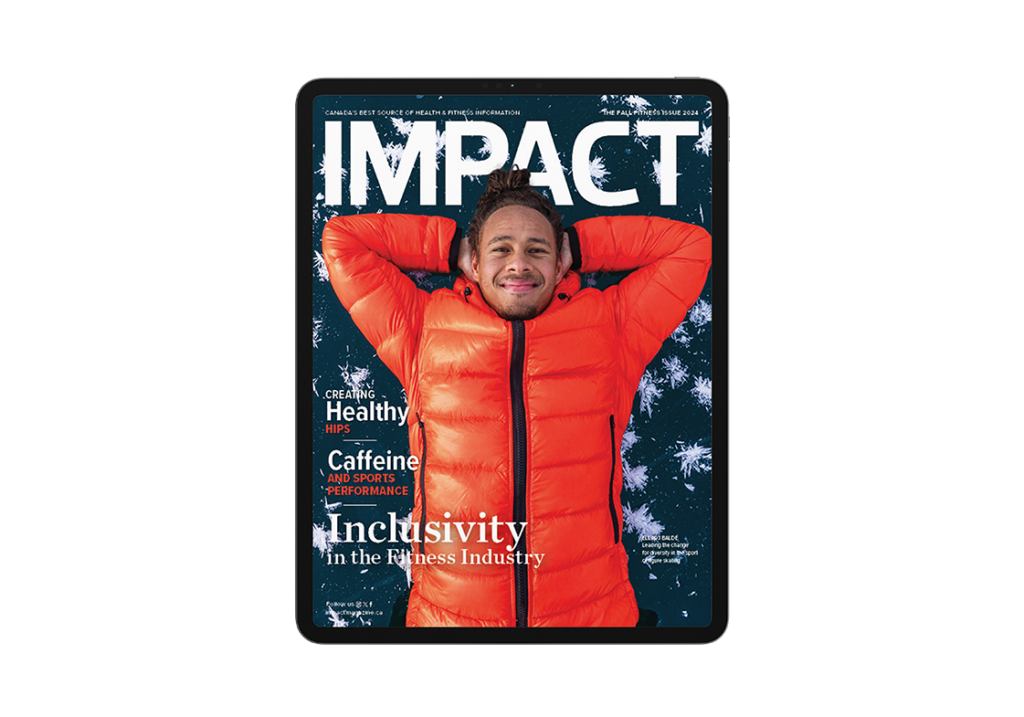Can’t go a day without your morning brew? You’re not alone. Approximately three billion cups of coffee are consumed worldwide each day. In Canada, coffee is the most consumed beverage among adults, even more than tap water! The $6.2 billion Canadian coffee industry continues to boom as many rely on this drink to get through their busy daily endeavours.
Caffeine is the super stimulant responsible for all the buzz. Although coffee is the most popular way to consume caffeine, chocolate, teas, soda, and energy drinks are also sources.
How Does Your Body Respond to Caffeine?
Caffeine is a naturally occurring chemical that stimulates the central nervous system to elevate mood, blood pressure, and metabolism. It is rapidly absorbed by the body and broken down in the liver. Caffeine enters the bloodstream within 15 to 45 minutes of consumption and interacts with all cells.
However, not everyone responds to caffeine in the same way. This variability is mainly due to genetic differences, particularly in the CYP1A2 enzyme, which metabolizes caffeine in the liver. People with a slow-metabolizing variant of this enzyme may experience prolonged caffeine effects, leading to jitteriness, anxiety, or disrupted sleep even at lower doses. Slow metabolizers also do not reap a performance benefit from using caffeine. These individuals should be cautious with caffeine intake, especially before exercise, to avoid adverse side effects. How do you know if you are a slow metabolizer? Genetic tests are available, but the easiest way to figure it out is to experiment with caffeine in training. If caffeine does not make exercise easier or performance better, you may be a slow metabolizer.
Caffeine for Sports Performance
Research strongly supports caffeine’s role in enhancing sports performance in most people. Caffeine improves performance across endurance, high-performance, and strength-training activities and appears to most consistently enhance performance in aerobic endurance exercise. Research finds caffeine improves performance by two to four per cent in activities involving aerobic endurance like cycling, running, swimming and cross-country skiing. In strength sports, preliminary research suggests that caffeine may enhance velocity and power performance.
In addition to physical benefits, caffeine enhances focus and cognitive performance. Because exercise improves mental performance, pairing it with caffeine can amplify these effects.
Most adults drink coffee, whether they lead an active lifestyle or not. Moderate coffee consumption should not hinder your athletic performance if you tolerate caffeine well during daily tasks. But if you are sensitive to caffeine and experience overstimulation, consider avoiding it or trying alternative forms of energy.
Caffeine Before and After Exercise
As mentioned, it takes approximately 15 to 45 minutes for caffeine to have a stimulating effect on the body. It takes about three to six hours for caffeine to clear the bloodstream, though this can vary depending on individual metabolism.
Pre-workout/Workout:
The long-lasting effects of caffeine can significantly enhance performance for several hours. A study found that caffeine improved performance in prolonged exhaustive exercise lasting up to two hours. The optimal caffeine dosage for endurance athletes is between 3 – 6 milligrams per kilogram of body weight, taken about 60 minutes before exercise. The minimal effective dosing level appears to be 2 milligrams per kilogram. This dosage range has been shown to enhance endurance performance without causing severe side effects in most individuals.
Larger athletes should limit their total caffeine intake to 3 milligrams per kilogram to not overshoot the 400 milligram daily maximum amount of daily caffeine recommended by Health Canada.
For those looking for a more controllable source of caffeine, consider taking it in an anhydrous (dry) form. Research suggests that caffeine in this form provides a more consistent and potent effect on endurance performance. Athletes may use a range of caffeine sources including chewing gums, gels, chews, sports drinks and mouth rinses.
Recovery: The prolonged effects of caffeine can interfere with sleep, a critical component of recovery. Be mindful of caffeine consumption in the afternoon and evening to avoid sleep disturbances. The timing of your last caffeine intake should be adjusted based on your individual metabolism.
Caffeine and Carbs
Caffeine can be paired with carbohydrates to boost pre-workout fuel. Research has shown that caffeine may enhance the absorption and usage of carbohydrates during exercise. When combined with glucose, caffeine produces enhanced activity compared to glucose alone. Although more research is needed, this combination could benefit you if you tolerate caffeine well.
How Much is Too Much? The optimal amount of caffeine varies widely among individuals. Health Canada recommends no more than 400 milligram/day, but some may experience jitteriness, anxiety, or headaches at lower doses. Higher doses beyond what you typically tolerate are unlikely to provide additional benefits and may lead to adverse side effects. It is also important to note that caffeine can increase anxiety in those athletes who experience high levels of performance anxiety. So, in a nutshell, when using caffeine to fuel physical activity, it’s crucial to understand your body’s tolerance and your competition day mindset before incorporating it into your routine.
A Note on Hydration:
Contrary to popular belief, caffeine does not dehydrate you. It does not significantly change sweat rates or water loss or directly affect fluid balance.
The Verdict
Most current research supports the use of caffeine in diets to enhance exercise performance. As long as you avoid overstimulation from excess caffeine, it can be a valuable tool for improving performance. It’s practical to experiment with caffeine first to ensure you’re comfortable with how it affects your body.
This article has been reprinted with permission from Ashley Leone www.gazellenutrition.com.
Caffeine content in common sources
| FOOD/ BEVERAGE | SERVING SIZE | CAFFEINE CONTENT (MG) |
|---|---|---|
| Brewed coffee | 237 ml (8 oz) | 135 |
| Espresso | 1 standard serving | 107 |
| Black or green tea, brewed | 237 ml (8 oz) | 30-50 |
| Milk chocolate | 28 g (1 oz) | 7 |
| Cola beverage | 355 ml (12 oz) | 36-46 |
| Chocolate milk | 237 ml (8 oz) | 8 |
| Tailwind Endurance Fuel (Raspberry) | 473 ml (16 oz mixed) | 47 |
| Skratch Hydration (Raspberry Limeade) | 473 ml (16 oz mixed) | 50 |
| Gu Roctane (Cold Brew) | 1 gel | 70 |
| Gu Roctane (Blueberry Pomegranate) | 1 gel | 35 |
| Neversecond (Espresso) | 1 gel | 75 |
| Krono Gel (Citrus Fruits) | 1 gel | 50 |
| Clif Bloks (Mountain Berry) | 3 chews | 50 |
| Jelly Belly Extreme Sports Beans | 29.6 ml (1 oz) | 50 |
You may also like: Stick to the Schedule

Read This Story in Our 2024 Fall Fitness Issue
IMPACT Magazine Fall Fitness Issue 2024 featuring Canadian figure skating icon Elladj Baldé, Paralympic shot putter Greg Stewart, Indigenous rights trail running Anita Cardinal. Adventure travel with some amazing winter getaways, strengthen your back and hips, find the art of joyful movement, Inclusivity in the fitness industry and so much more!
















